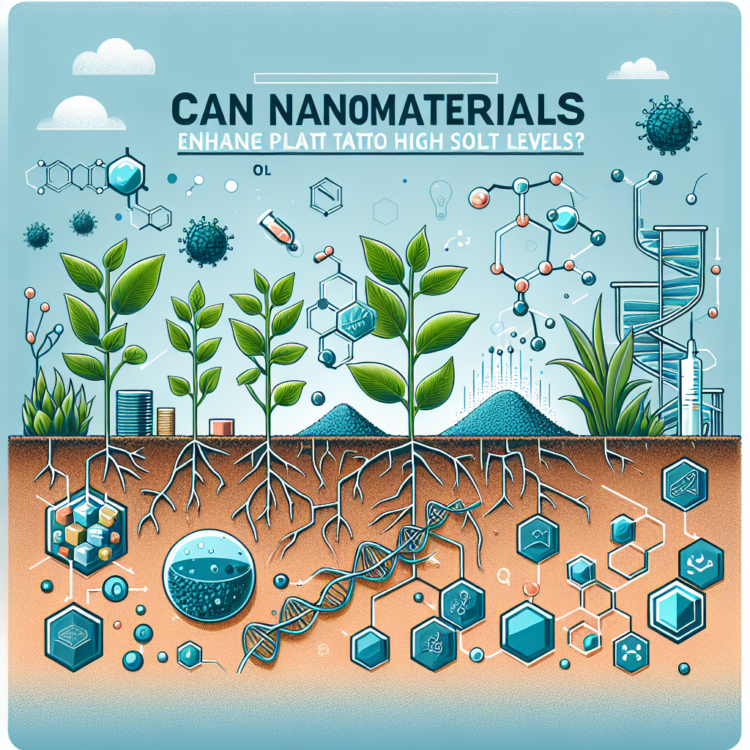Soil salt concentrations above the optimal threshold for plant growth can threaten global food security by compromising agricultural productivity and crop quality. An analysis published in Physiologia Plantarum examined the potential of nanomaterials—which have emerged over the past decade as a promising tool to mitigate such “salinity stress”—to address this challenge.
Soil salt concentrations above the optimal threshold for plant growth can threaten global food security by compromising agricultural productivity and crop quality. An analysis published in Physiologia Plantarum examined the potential of nanomaterials—which have emerged over the past decade as a promising tool to mitigate such “salinity stress”—to address this challenge.
Nanomaterials, which are tiny natural or synthetic materials, can modulate a plant’s response to salinity stress through various mechanisms, for example by affecting the expression of genes related to salt tolerance or by enhancing physiological processes such as antioxidant activities.
When investigators assessed 495 experiments from 70 publications related to how different nanomaterials interact with plants under salinity stress, they found that nanomaterials enhance plant performance and mitigate salinity stress when applied at lower dosages. At higher doses, however, nanomaterials are toxic to plants and may even worsen salinity stress.
Also, plant responses to nanomaterials vary across plant species, plant families, and nanomaterial types.
“Our analysis revealed that plants respond more positively to nanomaterials under salt stress compared with non-stressed conditions, indicating the ameliorative role of nanomaterials,” said corresponding author Damiano R. Kwaslema, MSc, of Sokoine University of Agriculture, in Tanzania. “These findings pave the way for considering nanomaterials as a future option for managing salinity stress.”
Additional Information
NOTE: The information contained in this release is protected by copyright. Please include journal attribution in all coverage. For more information or to obtain a PDF of any study, please contact: Sara Henning-Stout, newsroom@wiley.com.
About the Journal
Physiologia Plantarum advances the understanding of primary mechanisms of plant development, growth, and productivity, as well as plant interactions with the biotic and abiotic environment.
About Wiley
Wiley is a knowledge company and a global leader in research, publishing, and knowledge solutions. Dedicated to the creation and application of knowledge, Wiley serves the world’s researchers, learners, innovators, and leaders, helping them achieve their goals and solve the world’s most important challenges. For more than two centuries, Wiley has been delivering on its timeless mission to unlock human potential. Visit us at Wiley.com. Follow us on Facebook, X, LinkedIn and Instagram.
Journal
Physiologia Plantarum
Article Title
Meta-analysis of nanomaterials and plants interaction under salinity stress
Article Publication Date
7-Aug-2024




